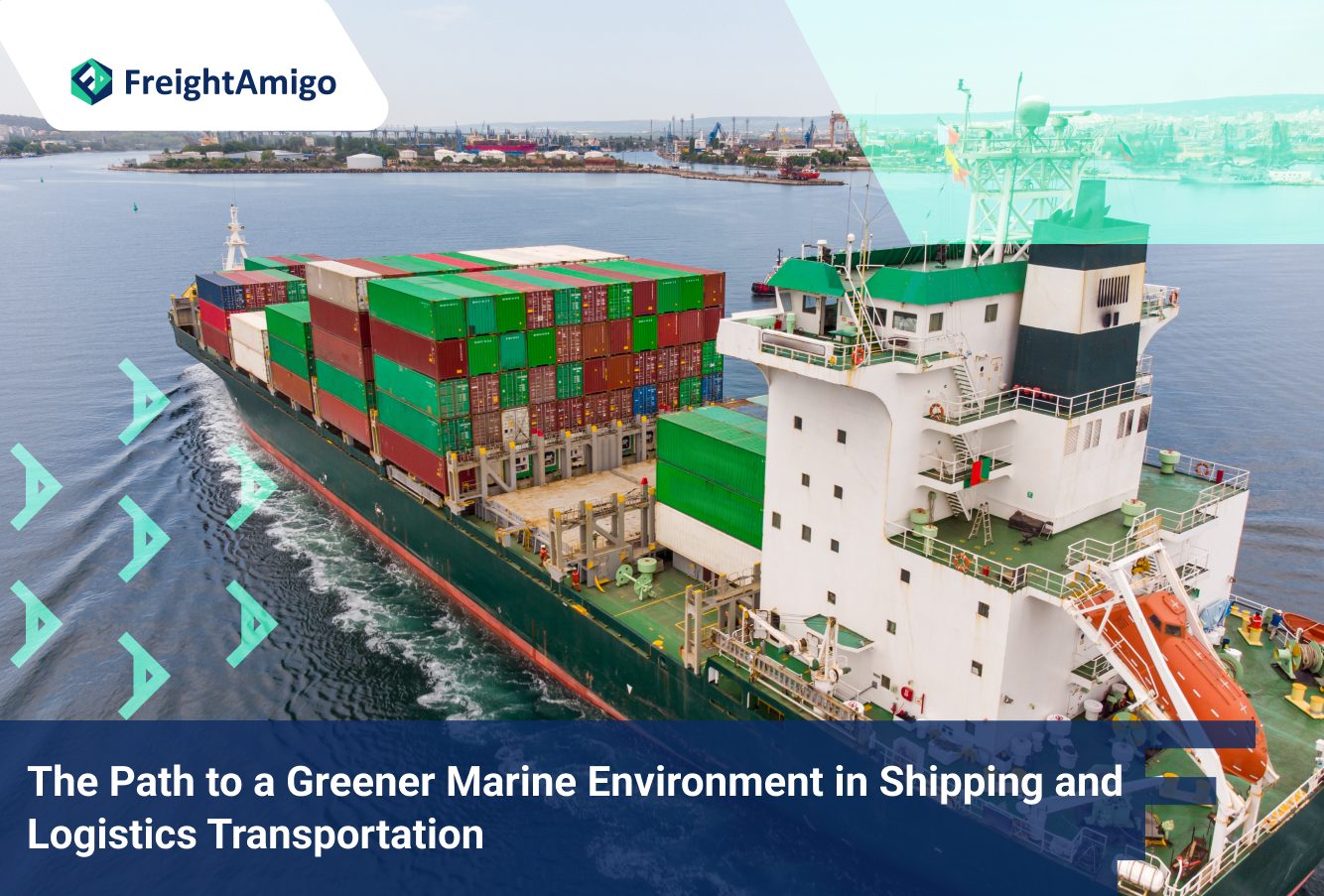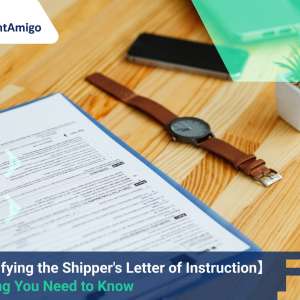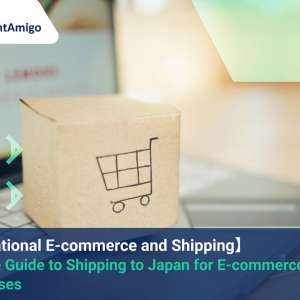22nd January, 2024 Caspian Ng – Marketing Analyst at FreightAmigo
Introduction
The maritime industry plays a vital role in global supply chains, facilitating the transportation of goods across the world’s oceans. However, the environmental impact of shipping has become a growing concern, prompting the industry to seek sustainable solutions. In this article, we will explore the initiatives and strategies being implemented to promote a sustainable marine shipping and logistics transportation. From emissions reduction to innovative technologies and waste management, the industry is making significant strides towards greener development.
Want to compare the best Express, Air Freight, Sea Freight, Rail Freight & Trucking rates so as to have better control on cost?
Understanding the Environmental Challenges
The marine environment faces multiple challenges due to shipping activities, including air and water pollution, carbon emissions, and the spread of invasive species. Recognizing the need for change, industry leaders and regulatory bodies have begun addressing these challenges through various initiatives. The International Maritime Organization (IMO), for instance, has introduced regulations to measure and reduce carbon intensity in shipping, while the International Convention for the Safety of Life at Sea (SOLAS) mandates the verification of cargo weight to prevent accidents and cargo waste.
Emissions Reduction and Improved Measurement
One of the primary focuses in achieving a greener marine environment is reducing emissions from shipping vessels. Companies are now measuring their emissions comprehensively, including Scope 1, 2, and 3 emissions, to gain a better understanding of their environmental impact. The IMO’s Carbon Intensity Indicator (CII) regulations have been instrumental in driving this measurement process. However, there is still room for improvement, as many calculations only consider weight and fail to account for factors like exhaust scrubber systems or slow steaming techniques. To effectively tackle emissions, companies must invest in the necessary equipment, technology, and expertise.
Optimizing Speed for Fuel Efficiency
Slowing down ships has proven to be an effective strategy for reducing fuel consumption and emissions. Danish Ship Finance reports that a 10% reduction in cruising speeds can result in nearly 30% less fuel usage. By adopting a slower and more accurate approach to journey planning, shippers can optimize their routes and arrival times, saving both money and resources. Historical data and benchmarking play a crucial role in determining the most efficient routes and maintaining consistent on-time performance.
Cargo Management and Waste Reduction
Efficient cargo management is another essential aspect of promoting a greener marine environment. The SOLAS Verified Gross Mass (VGM) declaration requires carriers to weigh cargo before loading, ensuring balanced loading and minimizing the risk of accidents and cargo waste. Technological advancements also enable shippers to monitor indicators such as tilt, temperature, and impact, helping to prevent spoilage and damage during transit. These measures contribute to reducing waste and improving the overall sustainability of maritime shipping.
Harnessing Innovative Technologies
The maritime industry is embracing a range of innovative technologies to drive sustainability in shipping and logistics transportation. From autonomous and automated navigational systems to alternative fuels and exhaust emission technologies, these advancements are revolutionizing the sector. For instance, the reintroduction of sails as a means of propulsion demonstrates a creative approach to reducing reliance on traditional fuel sources. Although many of these technologies come at a cost, similar to the adoption of electric cars, economies of scale are likely to drive affordability and widespread implementation.
Collaboration and Industry Initiatives
The journey towards a sustainable marine shipping environment requires collaboration among all stakeholders in the shipping and logistics industry. Industry-wide initiatives and partnerships are crucial for sharing knowledge, resources, and best practices. Organizations like the Solar Impulse Foundation and the Sustainable Shipping Initiative (SSI) are driving change through cross-sectoral collaboration, encouraging the adoption of sustainable practices and the development of clean and profitable solutions. These initiatives pave the way for a greener future in shipping and logistics transportation.
Investing in Sustainability
While progress is being made, achieving a greener marine environment requires substantial investments in sustainable practices and technologies. Companies that prioritize environmental sustainability demonstrate their commitment by investing in low-carbon fuels, emissions-reduction technology, and cleaner vessels. Additionally, financial support and incentives from governments and regulatory bodies can incentivize the adoption of sustainable practices across the industry. The collective effort of public and private entities is essential in driving the necessary changes for a sustainable and eco-friendly future.
Conclusion
The shipping and logistics industry recognizes the urgency of addressing environmental challenges and is actively working towards a greener marine environment. From emissions reduction and improved measurement to optimized speed and cargo management, sustainable practices are becoming integral to the sector’s operations. Collaboration, innovation, and investments in sustainability are key to achieving a more sustainable marine shipping and logistics transportation future. By embracing these initiatives, the industry can navigate towards a greener horizon, preserving the marine environment for generations to come.
There are different options for cargo transportation. If you want to choose the most convenient and suitable solution, it is best to have the full support of logistics experts! If you are planning to ship goods overseas, please go to the FreightAmigo page for inquiries.
===
Read More:
【Green Logistics】Carbon Reduction Policies Bring Benefits for Industry Sectors
Navigating the ESG Trend in Logistics: Challenges and Opportunities
【Logistics 101】What are duties and taxes?
【Logistics News】Sustainable Shipping and Logistics Collaboration between CMA CGM and WWF
===
If you have any inquiries on logistics/supply chain, feel free to contact FreightAmigo now:
Chat with us online | Hotline: +852 28121686 | WhatsApp: +852 27467829









































